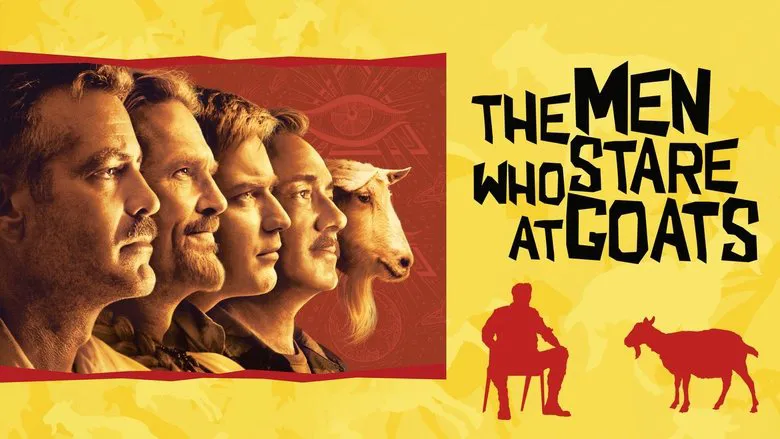The Men Who Stare at Goats: A Whimsical Journey into Psychic Warfare
“The Men Who Stare at Goats” is a peculiar cinematic offering, one that undoubtedly earns its spot as a delightful, if fleeting, viewing experience. Its profound charm lies in its eccentric premise and a cast that effortlessly navigates the fringes of outright absurdity. This film delves into the incredible, somewhat farfetched, revelation that the U.S. Army once conceived and trained an elite special forces unit comprised entirely of individuals endowed with extraordinary psychic abilities. From the outset, the movie embraces its bizarre nature, kicking off with a playful title card that boldly proclaims: “More of this is true than you would believe.” This tongue-in-cheek disclaimer sets the perfect tone for a narrative loosely inspired by Jon Ronson’s investigative book, which uncovers the Pentagon’s earnest, albeit bizarre, attempts to cultivate a squad of genuine psychic supersoldiers capable of astonishing feats such as walking through solid walls, achieving levitation, conducting remote reconnaissance through astral projection, instantly killing living beings with a mere stare, and even the seemingly mundane task of dispersing clouds. The film serves as a whimsical, often hilarious, exploration of these unbelievable claims.
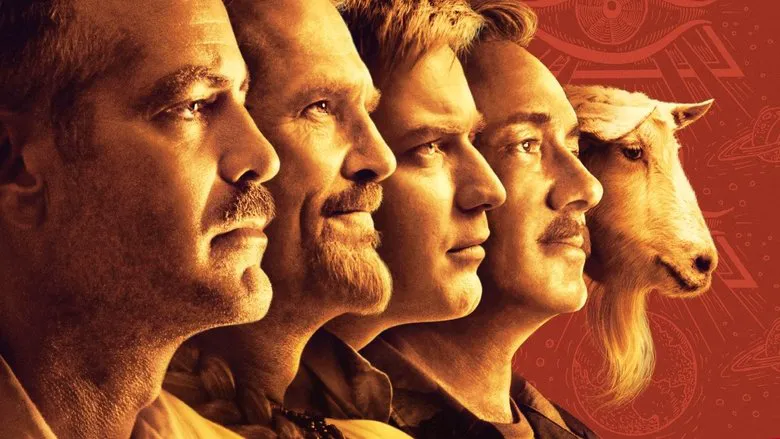
The Reporter’s Unlikely Odyssey
Our narrative centers on Bob Wilton, an unassuming and perhaps slightly naive reporter hailing from Ann Arbor. His dull journalistic routine is shattered when he crosses paths with an individual claiming to be a practitioner of these esoteric military arts. The film wastes no time in showcasing the immediate oddity of this world, as this self-proclaimed “expert in killing small animals” demonstrates his peculiar talent by making a hamster faint on video – a preposterous, yet strangely compelling, introduction to the film’s brand of humor. Soon after this bewildering encounter, Wilton finds himself dispatched to the tumultuous Middle East to report on the ongoing conflict, inadvertently propelling him deeper into this unforeseen realm of psychic commandos.
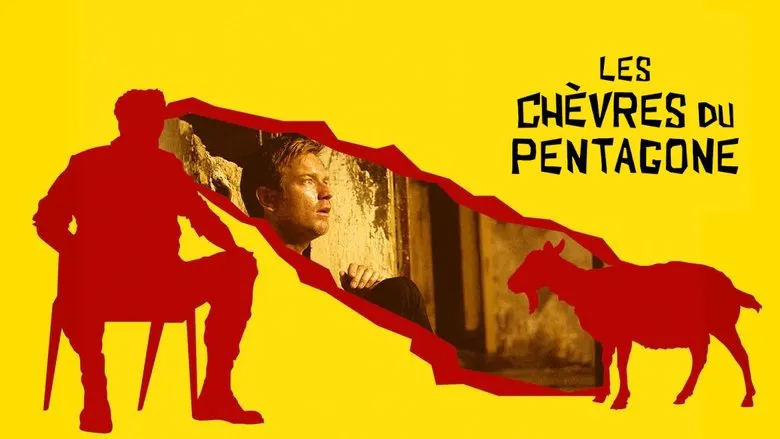
It is in a nondescript Kuwaiti hotel that Bob experiences a chance meeting that will forever alter his understanding of reality. He encounters Lyn Cassady, portrayed with effortless charm and a hint of unsettling eccentricity by George Clooney. Cassady is an enigmatic figure who claims to have undergone rigorous training two decades prior at a clandestine military base affectionately referred to as a “Jedi warrior” academy – a sly nod to popular culture that further cements the film’s playful tone.
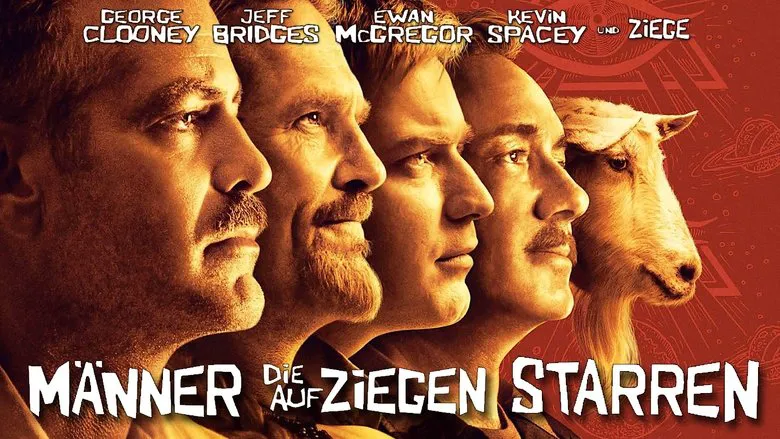
Cassady, with an intense stare that seems to pierce through the reporter’s very being, grandly asserts his uncanny abilities: paralyzing enemies without physical contact and instinctively gauging the number of energy sources (i.e., electrical outlets) in a room upon entry. He informs a bewildered Bob that their meeting is a matter of destiny, tied to his secret mission in the Middle East. Together, this unlikely duo embarks on an increasingly bizarre journey into the heart of Iraq. Their adventure devolves into a series of misadventures: they are kidnapped by local bandits, endure crawling through treacherous terrain under enemy gunfire, and witness their car spectacularly explode due to an improvised booby trap. Throughout these thrilling yet absurd escapades, Cassady ceaselessly entertains the reporter with vivid, fantastical tales from the secluded training base where his purported paranormal gifts were honed decades ago. Underlying his bizarre stories is a profound, recurring trauma – the memory of killing a goat with his mind, an event that has perpetually haunted his nightmares ever since.
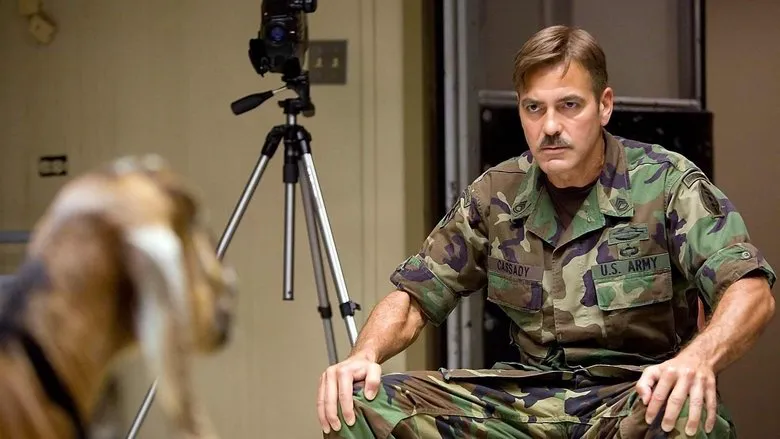
The Continuing Saga of the Psychic Soldiers and Their Goats
As their madcap odyssey progresses, it becomes chillingly apparent that the Pentagon’s ambitious psychic program, far from being a defunct relic of the past, is very much alive and well. In a darkly comedic twist, all the characters from Cassady’s outlandish stories – his former comrades and trainers – are eventually discovered at a remote Iraqi military base. The scene is made even more surreal by the presence of a disconcertingly large number of goats, all of whom are still undergoing various, presumably mind-bending, experiments. The absurdities don’t end there; concurrently, Iraqi prisoners of war are being subjected to a bizarre form of torture: forced listening sessions of a saccharine children’s song, highlighting the film’s unique blend of dark humor and profound oddity.
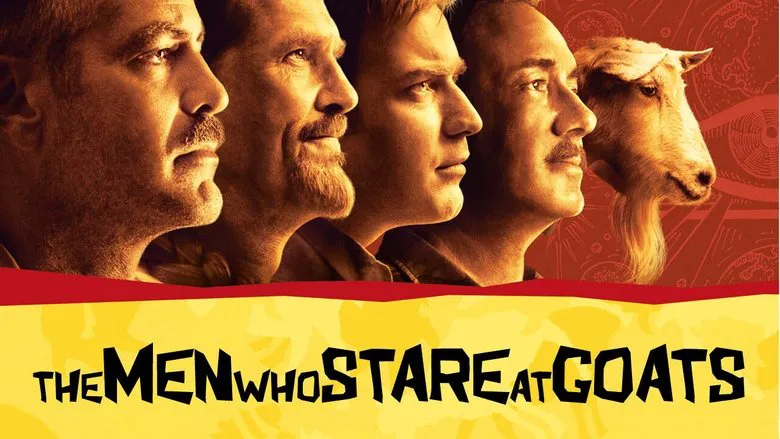
It is here that the full extent of the “New Earth Army” program is unveiled, with its bizarre methods and objectives becoming clearer, if not saner. The image of the goats, seemingly innocent participants in these mind-altering endeavors, serves as a poignant and often comedic symbol of the program’s sheer absurdity.
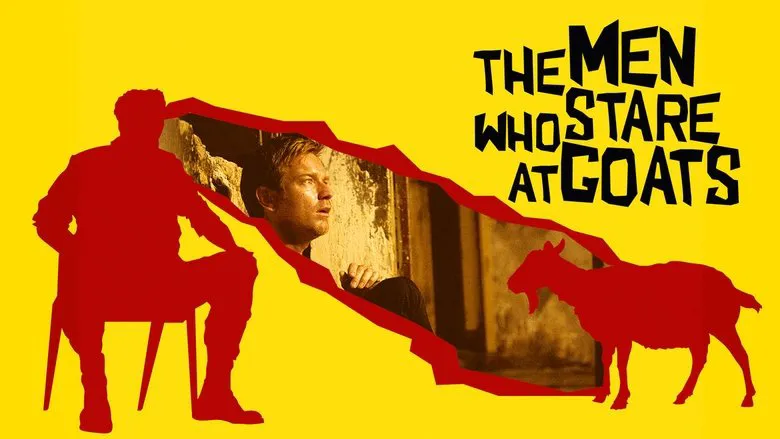
Commendable Performances and Coen-esque Echoes
The film’s ensemble cast truly elevates the peculiar material. Beyond the noteworthy contributions of Ewan McGregor as the bewildered Bob Wilton and George Clooney’s captivating portrayal of Lyn Cassady, the strength of the performances lies in the supporting roles. An exceptionally good Jeff Bridges shines as Bill Django, the Lebowski-esque spiritual leader of these mystical warriors, injecting the film with his signature brand of laid-back wisdom and stoner philosophy that perfectly suits the role. Kevin Spacey delivers a nuanced performance as a cunning science fiction writer who shrewdly ingratiates himself with Django, masterfully playing the manipulative opportunist amidst the genuine, if misguided, idealism.
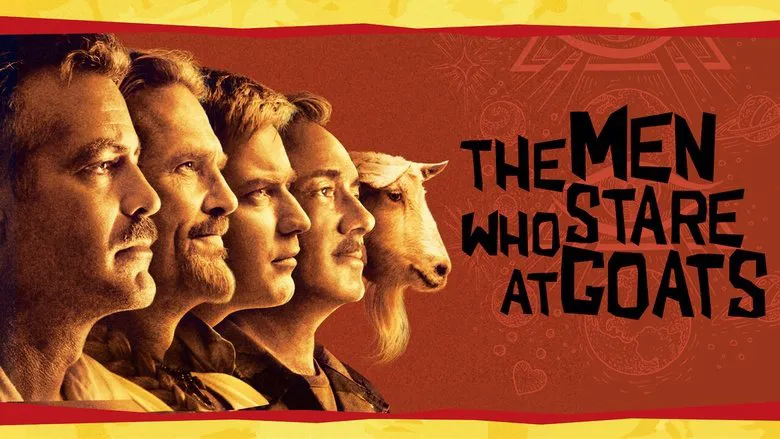
Director Grant Heslov clearly holds a deep admiration for the Coen brothers’ distinctive style (having previously produced their film “Intolerable Cruelty” seven years before). His attempt to craft a Coen-esque dark comedy populated by well-meaning simpletons and outright madmen is largely successful. The film reverberates with a quirky, off-kilter sensibility and a penchant for dry, observational humor that fans of the Coens will readily recognize. The dialogue is sharp, and the situations veer wildly between the genuinely funny and the profoundly surreal.
A Lightweight Punch: Missed Opportunities
Despite its undeniable charm and comedic prowess, “The Men Who Stare at Goats” ultimately leaves a lingering sense of it being too lightweight. Its inherent absurdity, while entertaining, seems to cry out for a broader, more significant global context. There was a palpable opportunity to delve deeper into the implications of such bizarre programs, to explore the wider ramifications of governmental folly, or even to add a layer of satirical bite that resonated more profoundly with real-world complexities.
Instead, Heslov largely confines the narrative to a singular, extended anecdote detailing the lives of a handful of utterly mad individuals and one particularly sympathetic, if somewhat doltish, protagonist. There is nothing inherently wrong with this narrower focus; indeed, the isolated anecdote is consistently funny, deeply charming, and undeniably engaging on its own terms. Yet, as the credits roll, one can’t shake the feeling of having anticipated something more, a deeper exploration or at least a more forceful conclusion to its outlandish premise. That “something more,” you realize with a sigh, was regrettably never the film’s intention to deliver, leaving an impression of delightful diversion rather than profound impact.
